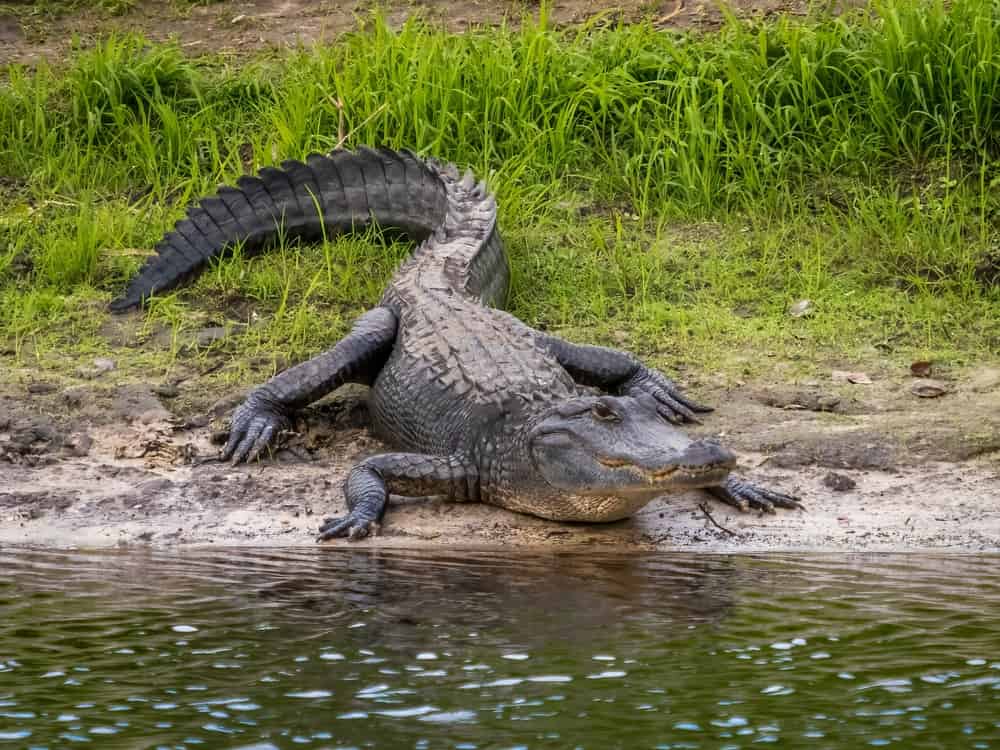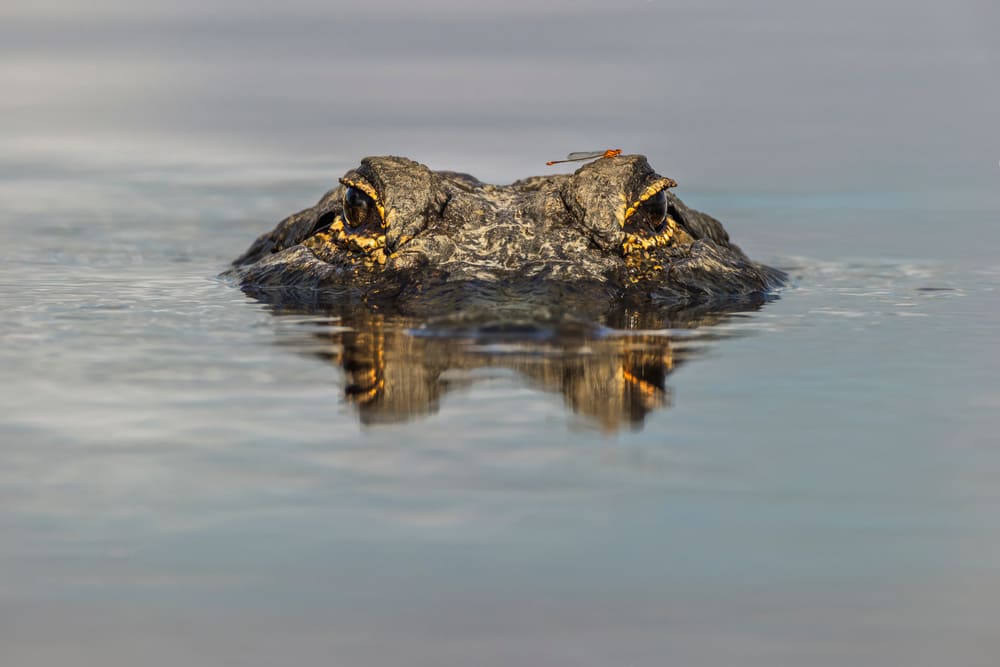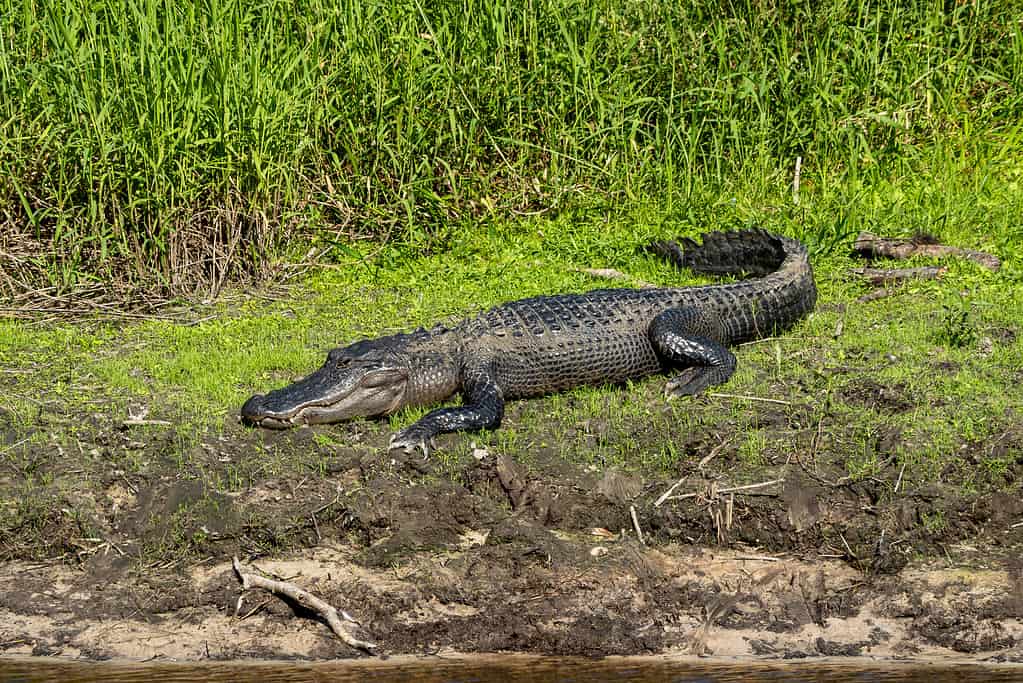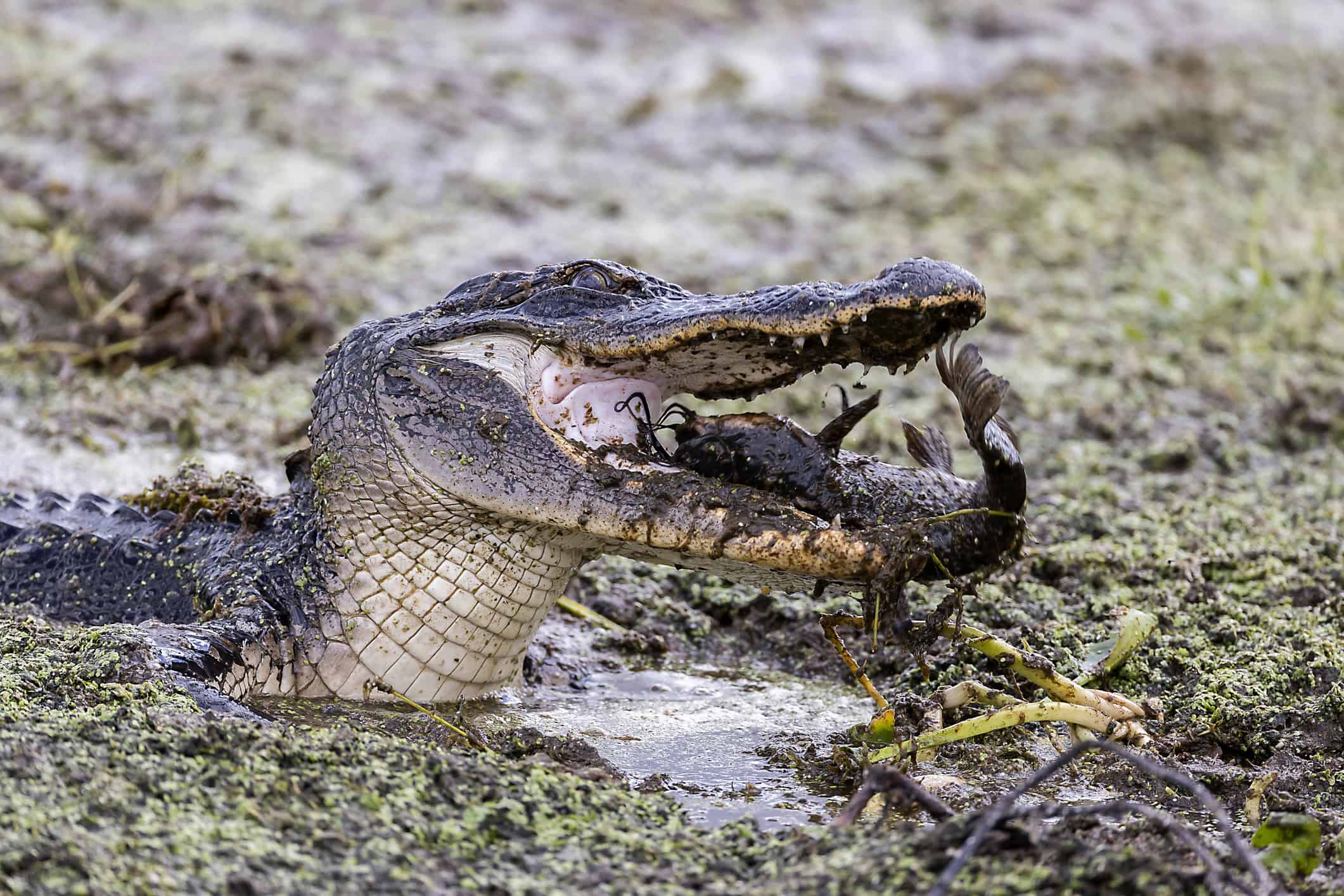Quick Answer:
- No, there are no alligators in Tennessee. They are not a native species in the state.
- Tennessee in general is not warm enough to support alligators throughout the year.
- Alligators are naturally expanding their range from border states like Mississippi, Alabama, and Georgia.
Alligators are always something to consider, especially if you live where they live. Want to take a dip in a pond? If you live in gator-country, it may be worth it to consider not risking it. As climate change and human-caused animal habits change, however, the locations that alligators once roamed may not remain the same. On the flip side, alligators are also expanding into new areas, sometimes into regions where people don’t expect them. Let’s take a look at these ancient reptiles! We will learn if they live in the great state of Tennessee, and of any history that the state has with these creatures. The answer may surprise you!
Are Alligators Native to Tennessee?

There are populations of alligators slowly migrating to the southern portions of Tennessee.
©Jim Schwabel/Shutterstock.com
Alligators are not native to Tennessee, but they are naturally expanding their range from the southern border states of Mississippi, Alabama, and Georgia.
Alligators are cold-blooded reptiles who require warm temperatures and water for survival. Tennessee does get warm during the summer months, but generally not warm enough to support alligators throughout the entire year.
That said, some alligators have been slowly creeping into the state. Sightings are becoming more and more common along the southern border. Most of the states that border Tenessee to the south, for reference, DO have native alligator populations.
The first confirmed sighting of a wild alligator in Tennessee was in 2010 with the capture of a 5-foot-long gator in Reelfoot Lake in Obion County. Since then, more alligator sightings occurred in the western and southwestern parts of the state, especially near the Mississippi River.
The Tennessee Wildlife Resources Agency (TWRA) estimates that fewer than 1,000 alligators are in the state. TWRA estimates the alligators primarily live in Shelby, Tipton, Lauderdale, and Fayette counties.
How Do Alligators Survive In Tennessee?

Brumation is a survival tactic alligators in Tennessee use to survive cooler winters.
©Danita Delimont/Shutterstock.com
Most gators have a reputation for only being able to live in the hottest parts of the world, but that isn’t always the case. In fact, alligators in Tennessee (and globally) have a remarkable ability to get them through tough winters in cold places.
Alligators are ectothermic (cold-blooded), which means they need external heat sources for body temperature regulation. When temperatures drop below 50°F, alligators become less active and actively try to conserve energy and use their fat reserves.
When these cooler periods extend more than a few days, however, they have a trick up their scales. This trick is known as brumation, which is similar to hibernation but not as deep. Brumation helps to slow the metabolism of the gators down, and changes body functions like breathing and energy levels. Alligators can brumate for up to a few months, which in the most southern parts of Tennessee, is enough.
Brumation is such a successful strategy for alligators, they are sometimes appear in frozen over lakes or ponds. When the water starts to freeze, they will go to the surface and stick their nostrils out of the water to breathe, and then let the ice close in around them.
Recent Alligator Sightings in Tennessee

Populations of gators in Tennessee are likely to grow as long as they are protected.
©FlagtailsPhotography/iStock via Getty Images
Some places are more uncommon than others for alligators to be found in Tennessee. The southern borders are much more likely to have alligators, but that’s still a relative statistic; essentially, gators in Tennessee are always rare. Still, sightings do happen, and not all of them are where you might expect them to be!
One of the most recent (and surprising sightings) was in September 2023. Incredibly, an alligator was found roaming the mountains of East Tennessee near the White Creek area. The alligator was about 4 feet long and two wildlife officers captured it. The alligator was relocated to the Chattanooga Zoo. It’s almost impossible that the alligator somehow migrated that far north and into the mountains, so most researchers think that it was a captive pet that someone let go once it got too big.
Another recent sighting was in March 2023, with the appearance of a seven-foot alligator on camera at the Wolf River Wildlife Management Area in Fayette County. This instance wasn’t as surprising as the “mountain gator” since it was seen in Southwest Tennessee, where they are considered rare and endangered.
Other sightings have been reported in Shelby, Tipton, Lauderdale, and Fayette counties, where there are probably around 1,000 gators or less. The first confirmed sighting of a wild alligator in Tennessee was in 2010, meaning that over the past 15 years or so, alligators have made serious moves to establish populations further north than historic precedent.
If you live in the known areas with alligators, it’s worth it to check before swimming!
Thank you for reading! Have some feedback for us? Contact the AZ Animals editorial team.








